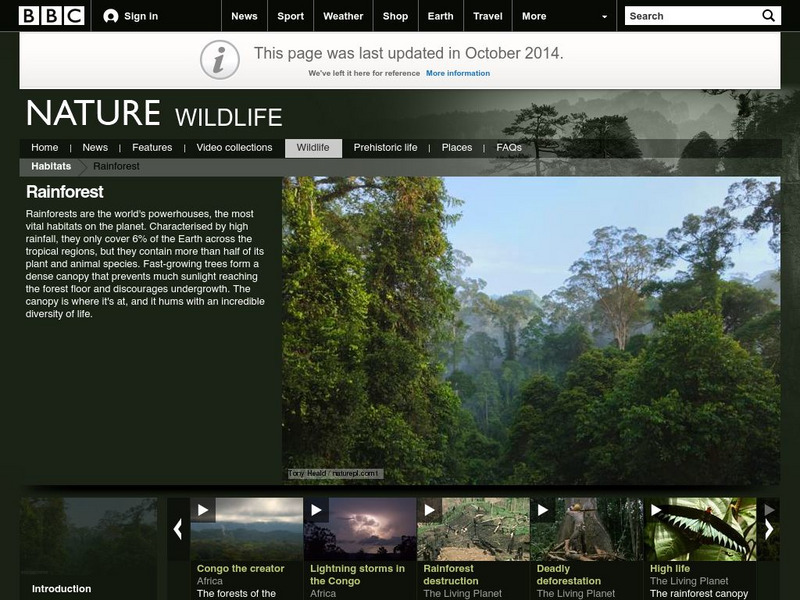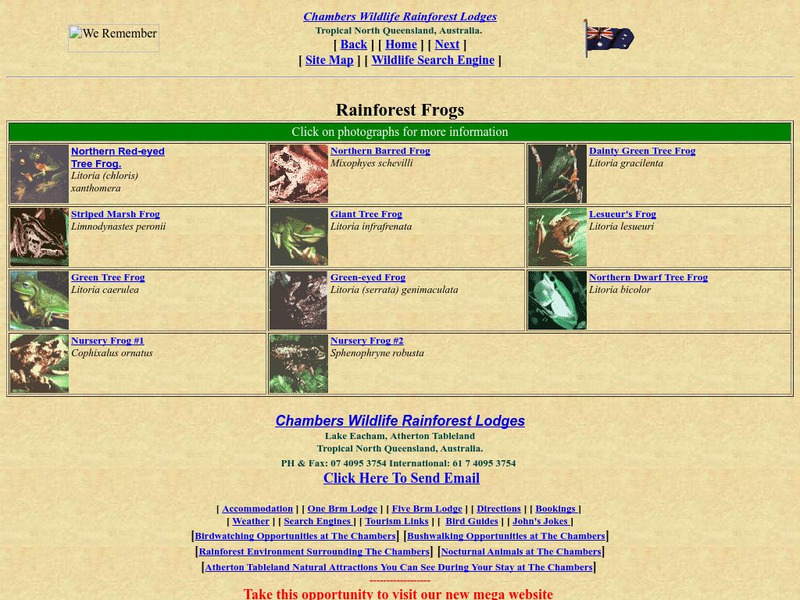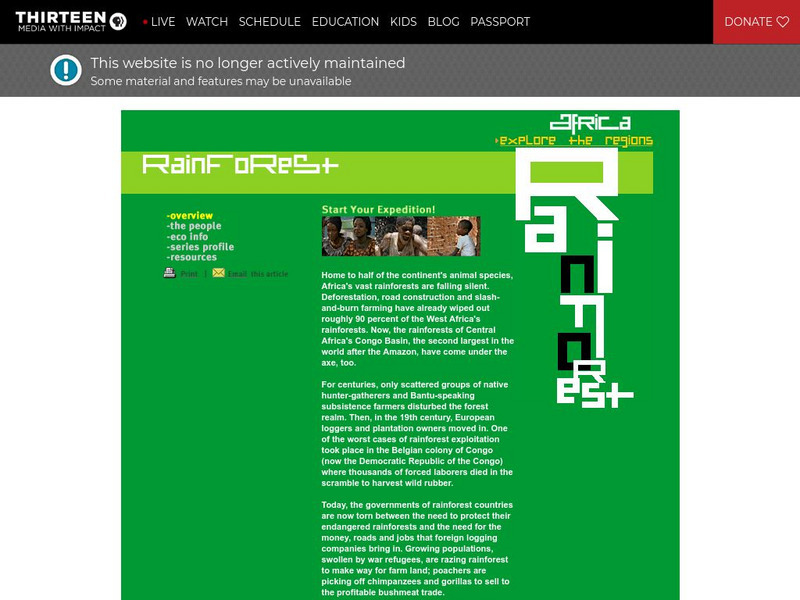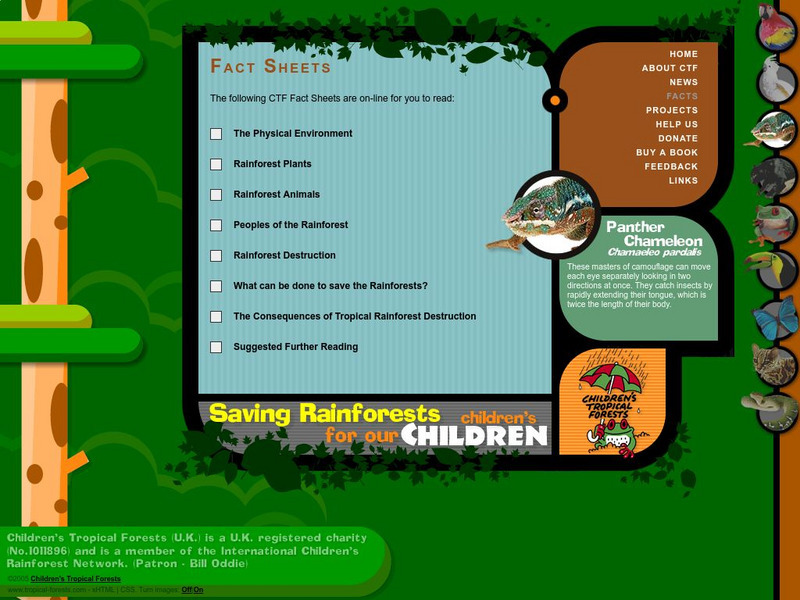Rainforest Alliance
Who Takes Care of the Maya Forest Corridor?
Who keeps animals safe? Who keeps us safe? Discover the helpers that make learning and growing possible through a medley of activities that focus on habitats—ours and those in the rainforest. Scholars are asked to identify one...
Tasha McKelvey
Clay Whistles
Create clay whistles with your elementary or middle school students. The project is outlined in great detail here, complete with step-by-step photographs, finished examples, a materials list, student handouts, and a rubric. Students...
Rainforest Alliance
Protecting the Critical Habitat of the Manatee and Loggerhead Turtle
Explore ocean habitats with a lesson that showcases the home of manatees and loggerhead turtles in Belize. Here, pupils compare and contrast the homes of ocean animals to those of humans, listen to an original short story about...
Rainforest Alliance
How Do Jaguars and Howler Monkeys in Belize Depend on Us?
How does weather play a role in the lives of land and sea creatures? Find out with a lesson plan focused on habitats and the ways animals from different homes are connected. Here, learners explore how the life of a jaguar and...
Rainforest Alliance
Knowing the Essential Elements of a Habitat
To gain insight into the many different types of habitats, individuals must first get to know their own. Here, scholars explore their school environment, draw a map, compare and contrast their surroundings to larger ones. They then...
Wilderness Classroom
Pollution
Educate scholars on pollution—air, water, and land—with a series of lessons that begin with a thorough explanation of each type. Learners then take part in three activities to reinforce the importance of reducing pollution. They...
Wilderness Classroom
Ocean Life
Our oceans are composed of many complex relationships. Young oceanographers explore relationships between organisms, understand the world ocean's currents, and discover the effects of water pollution and how it behaves. There are...
Ask a Biologist
The Many Faces of Ants
Though they be but little, they are fierce! Young biologists read about eight different species of ants, and discover how the anatomy of their heads can explain the way they live and what they eat.
BBC
Bbc Nature: Wildlife: Rainforest
Explore the intriguing world of the rainforest and discover what lives and grows there through videos, pictures, news, and external links. Listen to the various sounds made in different rainforests.
A-Z Animals
A Z Animals: Reference: Habitats: Rainforest
Find out about the plant and animal interactions within the rainforest ecosystem.
Science Struck
Science Struck: The Amazon Rainforest Climate
Describes the ecology of the Amazon rainforest, the characteristics of its climate, the impact of human actions on this environment and the need for stronger conservation efforts to save the rainforests.
Other
Australian Rainforest Wildlife: Rainforest Frogs
Here you can find information on the frogs found in the Australian rainforest. Select a species for a photo and more detail.
Other
Rare Species Conservatory Foundation: Facts, Figures and Photos
Explore the rainforest with these colorful games, pages of animal facts, and links to more information.
PBS
Wnet: Thirteen: Africa: Explore the Regions Rainforest
Explore African rainforests at this richly illustrated and informative site from PBS. Learn about the people, economy, and countries of these densely forested zones.
Science Struck
Science Struck: Plants and Animals of the Tropical Rainforest Biome
Describes the layers of a rainforest, adaptations plants have made, and animals that live there.
Science Struck
Science Struck: Rainforest Food Web
Explains the characteristics of tropical and temperate rainforests and what rainforest food webs look like.
Other
Tropical Broadleaf Evergreen Forest: The Rainforest
This is a general overview of the tropical rainforests that focuses on climate, animal life, vegetation, soil and so on. It also includes a rainforest map.
Science Struck
Science Struck: Abiotic Factors of the Rainforest
Abiotic factors, e.g., sunlight and precipitation, play a huge role in supporting biodiversity in a rainforest. This article discusses the features of rainforests and how abiotic factors affect the plants and animals that live there.
Science Struck
Science Struck: Tropical Rainforest Food Web
Explains what a food web is, the complexity of one in a rainforest, and how energy flows through a food web.
Science Struck
Science Struck: Tropical Rainforest Energy Pyramid and Its Importance
Explains the roles of consumers, producers, and detrivores or decomposers and how energy flows through the different levels of the energy pyramid of a tropical rainforest.
Center for Educational Technologies
Earth Floor: Biomes: Tropical Rainforest Plants
Site offers information about tropical rainforest plants and plant adaptations. Offers links to other biomes as well.
Other
Children's Tropical Forests: Rain Forest Facts
Read fact sheets about topics related to the rainforest: the physical environment, plants, animals, native people, its destruction, consequences of destruction, and ways to help.
Other
Rainforest Alliance: Tropical Forests in Our Daily Lives
The tropical forests of the world are the source of numerous products we depend on every day. Find out why they are so beneficial and the action you can take to conserve them.
Other
Rainforest Alliance: Species Profiles
This resource has rain-forest species profiles for amphibians, birds, mammals, insects, and plants. Each profile explains the organism's anatomy, habitat, diet, and threats.
Other popular searches
- Rainforests
- Rain Forest
- Rainforest Diorama
- Tropical Rainforest
- Rainforest Food Webs
- Amazon Rainforest
- Rainforest Layers
- Tropical Rainforest Math
- Rainforests Art
- Rain Forest Diorama
- Amazon Rainforest Worksheets
- Rainforest Deforestation













